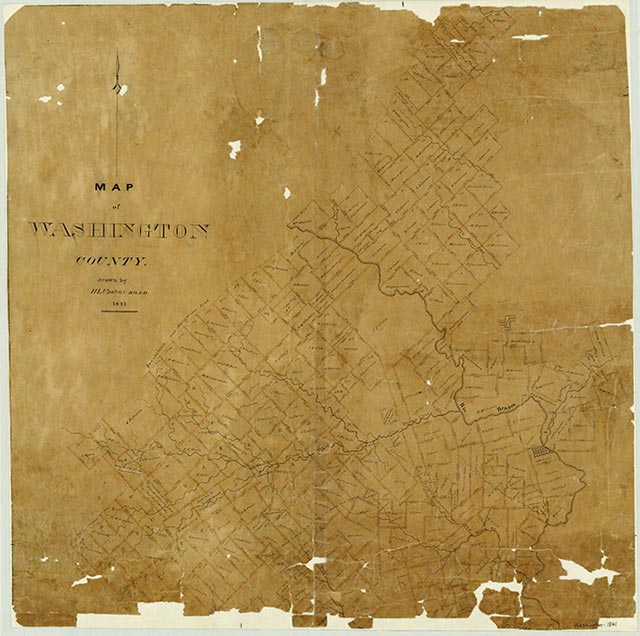Jacksonville

Jacksonville, one of the earliest towns in Washington County, was in the southeastern part of the county some three or four miles north of the site of present Chappell Hill and twelve miles from Washington-on-the-Brazos. In 1839 or 1840 Jacksonville was founded and named for one of three Jackson families who had been among the earliest settlers in the area-possibly for the three brothers Isaac, Alexander, and Humphrey Jackson, members of Stephen F. Austin's Old Three Hundred. The town's name may also honor Terrell Jackson, a rich plantation owner in the area. Members of a local Jackson family built the earliest sawmill in Washington County on New Year's Creek to take advantage of local waterpower and the plentiful supply of cedar trees, which made very durable building material. This sawmill stimulated Jacksonville's development into a town by attracting customers from the entire county. The town's population and commercial importance increased when residents constructed a wide road linking the settlement to a Brazos River steamboat landing. Jacksonville's inland location may have aided its further growth because the area closer to the Brazos River was marshy and frequently malarial. By serving as a transit point for Brazos River shipping between inland areas and the Gulf Coast, Jacksonville prospered, and a business district grew up there of stores, warehouses, and a tavern. Eventually the town obtained the majority of all trade from the area steamboat traffic, and for a time Jacksonville was the most populous town in the county. A Baptist congregation, led by the Rev. Hosea Garrett, constructed a church on the outskirts of town. Jacksonville residents included the Shepard family, later famous in Texas jurisprudence, and Dr. J. S. Shepard, a physician who lived in the town in 1850. In the 1840s Jacksonville was a stop on the stage route between Washington (later Washington-on-the-Brazos) and La Grange, Fayette County. Weekly horse races brightened the social life.
The increasing importance of Washington as a riverport probably contributed to Jacksonville's decline in the 1850s. Persistent navigation difficulties on the Brazos River hindered growth and made the economy precarious in all towns dependent on the Brazos steamboat traffic. Jacksonville lost residents as such new towns as Brenham and Chappell Hill rose nearby. Methodist settlers were especially attracted to the thriving Methodist center at Chappell Hill. Jacksonville retained its post office only from June to November 1847; the office was then transferred to Chappell Hill. The completion of the Washington County Railroad to Chappell Hill in 1859 and to Brenham in 1860 killed towns like Jacksonville that depended on the river trade. The exact date of the town's disappearance is unknown. No Jacksonville structures remain.
Carole E. Christian | © TSHA

Adapted from the official Handbook of Texas, a state encyclopedia developed by Texas State Historical Association (TSHA). It is an authoritative source of trusted historical records.

- ✅ Adoption Status:
- This place is available for adoption! Available for adoption!
- Adopted by:
- Your name goes here
- Dedication Message:
- Your message goes here
Belongs to
Jacksonville is part of or belongs to the following places:
Currently Exists
No
Place type
Jacksonville is classified as a Town
Has Post Office
No
Is Incorporated
No
